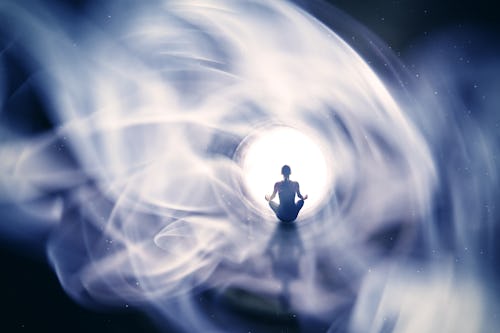
What happens when we die has been pondered since, well, forever. It seems pretty safe to say that we, as humans, are probably never going to come to a consensus about the spiritual ramifications — or lack thereof — of death, but scientists may be getting closer to understanding the process. Recently, a multi-disciplinary group of scientists released a statement announcing that near-death experiences are not hallucinations, contrary to popular belief.
The announcement, which was published in February in Annals of the New York Academy of Sciences, is essentially a statement of consensus about what scientists can agree is true about death and near-death experiences. It includes contributions from dozens of experts around the world in everything from medicine to neurophysiology.
One thing that these researchers agree upon is that physiological or cognitive processes don’t actually end right when someone dies — and that those near-death experiences you’ve likely heard about aren’t hallucinations, as some have hypothesized, but instead a distinct cognitive process, EurekAlert reported.
“Brain cells do not become irreversibly damaged within minutes of oxygen deprivation when the heart stops,” Sam Parnia, director of Critical Care and Resuscitation Research at NYU Grossman School of Medicine and lead author of the study, told EurekAlert. “Instead, they ‘die’ over hours of time. This is allowing scientists to objectively study the physiological and mental events that occur in relation to death,” Parnia explained.
Death is clinically defined as when the heart stops beating — but as this study makes clear, the brain doesn’t stop working at the same time the heart does. Because of that, we can study what happens in the brain after a person dies. Scientists say that the gamma activity and electrical spikes shown in the brain after death indicate a heightened state of consciousness.
So, what makes these after-death moments different from hallucinations? Researchers say that the experiences people recall following near-death experiences are not consistent with hallucinations, illusions, or psychedelic drug induced experiences, according to EurekAlert. Instead, these near-death — or recalled life — experiences are defined by a specific narrative arc, and they often lead to positive psychological growth after a person is resuscitated.
Another point that scientists agreed upon was that we can’t really keep thinking about death as a single moment — i.e. when the heart stops. Instead, the heart stopping is another stage of death itself. “Cardiac arrest represents the final stage of a disease or event that causes a person to die,” Parnia explained to EurekAlert. “The advent of cardiopulmonary resuscitation (CPR) showed us that death is not an absolute state, rather, it’s a process that could potentially be reversed in some people even after it has started.”
Basically, there’s no on/off switch for life. Death is a process, and the heart stopping is one of the final moments in that process, but it’s not the end. What happens after that point may always remain something of a mystery. We can never know the specific thoughts each person has as they are in the process of dying, but this study suggests that there is a pattern to those thoughts that can’t be reduced to a flight of fancy on behalf of the dying.






